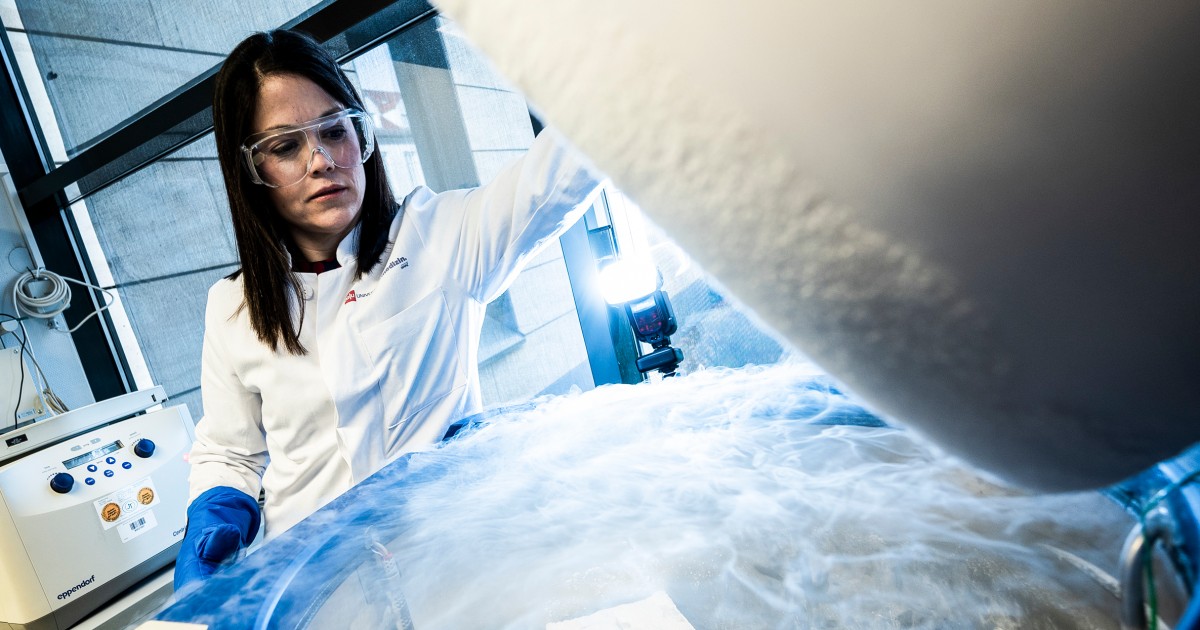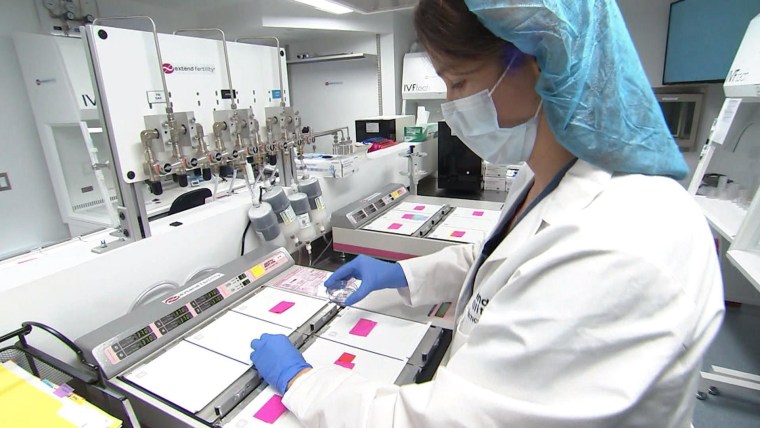Frozen embryos linked to greater threat of hypertensive problems during being pregnant, review finds
 [ad_1]
[ad_1]
Undergoing in vitro fertilization working with frozen embryos is linked to a better chance of hypertensive diseases, which includes preeclampsia, during being pregnant, in accordance to study published Monday in the journal Hypertension.
Even though the url involving frozen embryo transfers and elevated blood strain is not new, the analysis, which provided data on tens of millions of women in Norway, supplies a clearer being familiar with of the possibility. The study was also the greatest to date that provided knowledge on gals who had numerous pregnancies.
Over-all, the risk of hypertensive conditions was reduced: about 7.4% in women who applied frozen embryos, in contrast with 5.6% in females who applied contemporary embryos and 4.3% for gals who conceived by natural means.
But when the scientists altered for other factors that could trigger hypertensive issues in the course of being pregnant, these kinds of as age, present substantial blood force and weight problems, they found that the hazard was about 74% better when frozen embryos ended up used, in comparison with IVF working with fresh new embryos or a naturally conceived pregnancy. In addition, they observed, there was no important variance in danger between the ladies who conceived by natural means and those who did IVF using refreshing embryos.
About 75% of the women of all ages who formulated hypertensive ailments in the analyze formulated preeclampsia, marked by seriously superior blood strain together with symptoms of liver or kidney hurt after the 20th week of pregnancy. It can be lethal if untreated.
“If our examine only identified that there was an association just for isolated gestational hypertensive disorders, we wouldn’t be that anxious, but we uncovered in our further analysis that there was a sturdy affiliation in between frozen IVF and preeclampsia,” explained the study’s lead creator, Dr. Sindre Petersen, a doctoral fellow at the Norwegian University of Science and Technology.
Developing higher blood strain in pregnancy does not often guide to troubles, but it is critical for doctors to watch these ladies carefully for signs of preeclampsia. About 1 in 12 females in the U.S. have large blood stress through pregnancy, according to the Centers for Disease Management and Prevention, and about 1 in 25 expecting women develop preeclampsia, in accordance to the American Coronary heart Association.
The new study looked at knowledge on 4.5 million pregnancies in Norway from 1988 by means of 2015. The group provided 4.4 million by natural means conceived pregnancies and as opposed them to just around 78,000 IVF pregnancies conceived applying a contemporary embryo and about 18,000 employing a frozen embryo. About 33,000 of the pregnancies have been in gals who experienced additional than one particular being pregnant.
In accordance to preliminary information from the CDC, virtually 80,000 toddlers in the U.S. born in 2020 ended up the final result of assisted reproductive engineering, which incorporates IVF.
“The reality is that women of all ages are now more mature when they have their 1st being pregnant, so they are additional possible to likely require remedies like IVF, which may possibly be far more prevalent in the long term,” explained Dr. Anum Minhas, a cardio-obstetrician at Johns Hopkins Medicine, who was also not concerned in the new study.
Accurately why utilizing a frozen embryo raises a woman’s hazard of a hypertensive disorder stays unclear, but one speculation is the absence of a short term organ named the corpus luteum.
When a female ovulates, a follicle in her ovary releases an egg. Soon after, that follicle develops a corpus luteum, which secretes hormones necessary early in pregnancy. These consist of progesterone and relaxin, which do the job together to thicken the partitions of the uterus and make it an excellent ecosystem for a building embryo.
“In synthetic frozen transfers, that corpus luteum is bypassed. But in contemporary transfers, it is however current,” Petersen mentioned.
A preceding examine published in Hypertension in 2019 observed that females who conceive with no a corpus luteum have a bigger hazard of preeclampsia. It also identified that the chance of preeclampsia was elevated in women of all ages who experienced a frozen transfer but not in individuals who received a contemporary embryo throughout IVF.
How an embryo develops can also perform a position in hypertensive issues, said Dr. Elizabeth Langen, co-director of the cardio-obstetrics program at the College of Michigan, who was not concerned in the new investigation. Embryo freezing could affect the growth course of action, she reported.
One limitation of the analyze is that it provided mainly white members.
“How properly it applies to other nations, especially international locations with a great deal of racial ethnic diversity, is unclear,” said Minha, including that the enhanced hazard for Black girls in the U.S. and South Asian females worldwide could be even increased.
Petersen emphasised that the total risk for preeclampsia was nonetheless small and that the outcomes of the new examine should really not scare women of all ages absent from making use of frozen embryos.
Follow G3 Box News HEALTH on Twitter & Facebook.
[ad_2] https://g3box.org/news/health/frozen-embryos-linked-to-greater-threat-of-hypertensive-problems-during-being-pregnant-review-finds/?feed_id=9348&_unique_id=6332188381ed9



0 comments:
Post a Comment